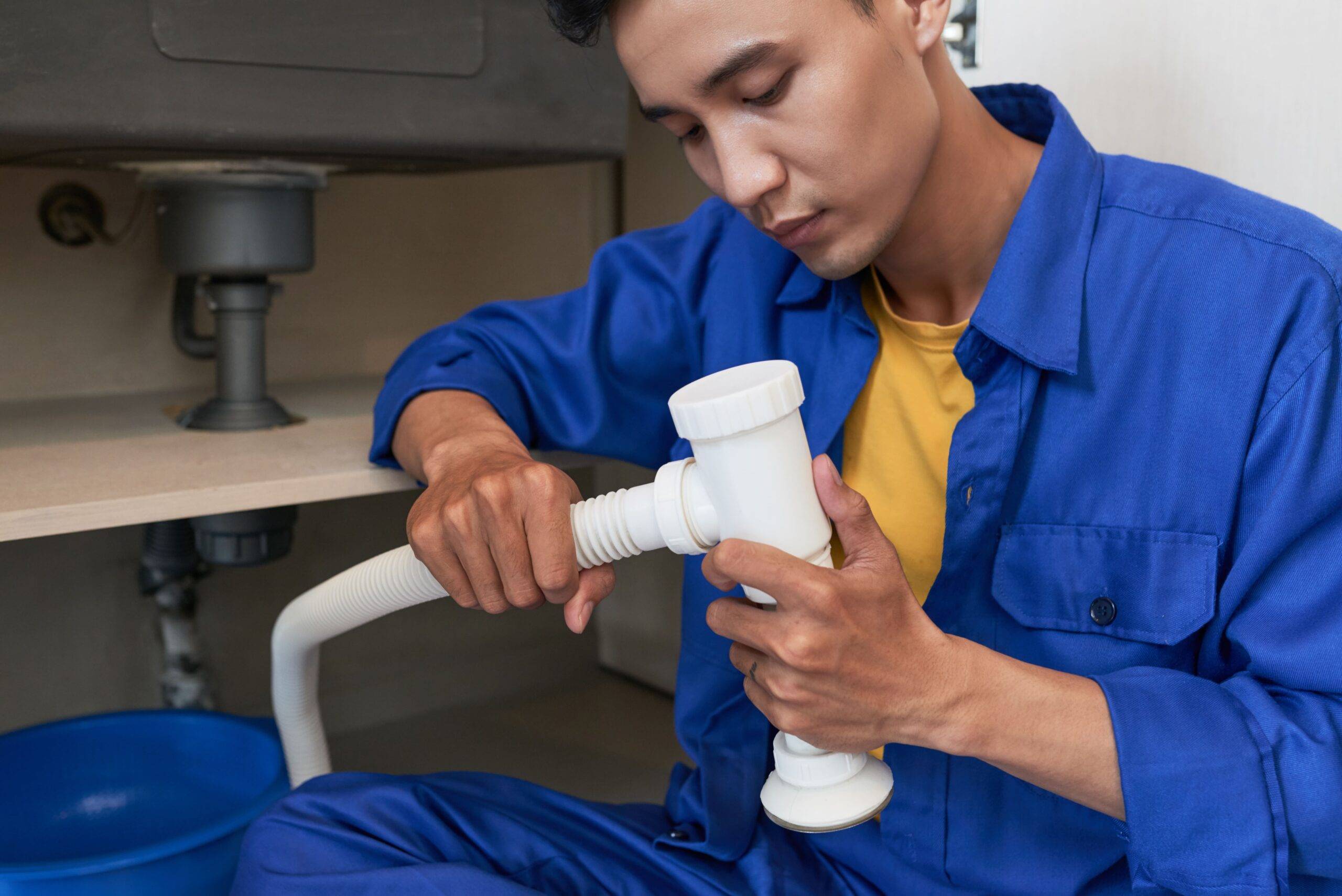10 Common Signs You Need Emergency Plumbing Repair
Your HVAC system has its own vital fluid channels, particularly for condensate drainage and, in certain situations, refrigerant lines or water-cooled components, even though we usually connect plumbing with pipes, toilets, and sinks. When things go wrong, they can cause serious plumbing problems in your HVAC system, which can result in expensive downtime, water damage, and poor air quality.
\A slight problem could become a massive catastrophe if these warning signs are ignored. It’s critical to know when to call for emergency HVAC plumbing repair in order to safeguard your property and maintain business operations.
Here are 10 common signs that your commercial HVAC system requires emergency plumbing attention:
1. Water Leaking from Your Indoor HVAC Unit
This is the most alarming sign if you see water dripping or pooling around your indoor air handler or furnace.
- Why it’s an emergency: This usually indicates a clogged condensate drain line, a cracked drain pan, or a refrigerant leak. Left unaddressed, it can cause severe ceiling, wall, and flooring damage, and create a breeding ground for mold.
2. Excessive Puddling or Algae Near the Outdoor Condenser Unit
Excessive pooling, especially with a greenish tint, can indicate a problem.
- Why it’s an emergency: It suggests an issue with the condensate line being improperly sloped, clogged, or broken, preventing proper drainage. The algae indicate stagnant water and potential blockage.
3. Musty, Moldy, or Sewer-Like Odors from Vents
If you notice a persistent damp, moldy, or even sewer-like smell emanating from your HVAC vents, it’s a serious concern.
- Why it’s an emergency: This clearly indicates the presence of standing water in the ducting or condensate drain pan, which can result in the growth of mold and mildew.
Sewage gases can enter the system through a cracked drainpipe or a dry drain trap in extreme circumstances, which poses a serious health risk.
4. Gurgling or Dripping Sounds Inside Walls or Ceilings
Unexplained gurgling, bubbling, or dripping sounds coming from within walls or above ceilings when your HVAC system is running can be incredibly unsettling.
- Why it’s an emergency: These sounds often indicate a leak in the condensate drain line or a refrigerant line caused by water or refrigerant escaping and collecting in unseen spaces, signaling hidden damage.
5. Sudden Drop in Cooling (or Heating) Efficiency
A sudden and drastic decline often points to fluid-related problems.
- Why it’s an emergency: A significant loss of cooling often means a severe refrigerant leak that affects heat exchange. Without proper levels, your AC can’t be cool. Similarly, a major condensate clog can put stress on the system, impacting its ability to cool effectively.
6. Ice Buildup on the Indoor (Evaporator) Coils
If your indoor unit is found with ice forming on the refrigerant lines or evaporator coils, it’s a sign of trouble.
- Why it’s an emergency: This usually indicates low refrigerant levels, a clogged air filter, or a problem with the blower’s motor. All these put immense strain on the system and can lead to compressor failure eventually.
7. Constantly Running AC Unit Without Reaching Set Temperature
Your AC unit is running endlessly, but your office just isn’t getting cool, or the temperature is rising.
- Why it’s an emergency: This can stem from critically low refrigerant levels, a severe condensate line blockage causing a lockout, or even a frozen coil.
8. The HVAC System Keeps Tripping its Circuit Breaker
While an electrical issue is often suspected, persistent tripping of the circuit breaker can sometimes be a symptom of a plumbing-related HVAC problem.
- Why it’s an emergency: A severely clogged condensate drain leading to water overflowing onto electrical components can cause shorts. Similarly, a struggling compressor due to a refrigerant leak can draw excessive power, leading to trips.
9. Visible Rust or Corrosion on HVAC Components or Surrounding Areas
Spotting rust or excessive corrosion on your HVAC unit’s parts is a warning sign.
- Why it’s an emergency: Rust indicates prolonged exposure to moisture, likely from slow or persistent leaks. This corrosion can compromise the vital components, leading to bigger leaks or system failure.
10. Strange Hissing or Bubbling Sounds from Refrigerant Lines
Hissing, bubbling, or fizzing sounds coming from the copper lines connected to your indoor or outdoor HVAC units must be fixed.
- Why it’s an emergency: These noises are indicators of a refrigerant leak. Refrigerant is a pressurized gas, and a leak will result in a hiss or bubbling as it escapes, impacting cooling and the environment.
Stop your HVAC system right away and call a professional commercial HVAC plumbing repair service if you notice any of these symptoms, including water leaks, odd smells, or a loss of cooling. A proactive approach can protect your company against long-term property damage, health risks, and much greater repair or replacement expenses. Avoid letting a minor leak become a stealthy gas leak or an expensive flood.

